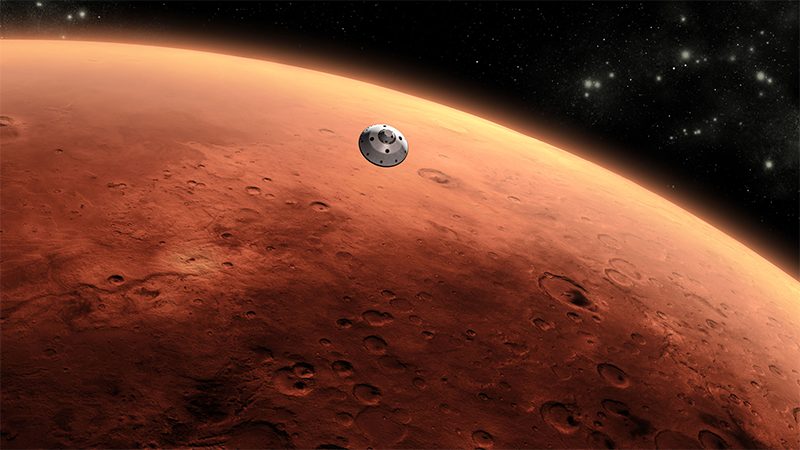An international master’s degree trains the next generation of planetary science experts
In 2017, the LPG and its research partners created the GeoPlaNet consortium. The aim: to promote the mobility of young researchers within the network. “But not just researchers, students too!” stresses Sabrina Carpy, project coordinator, lecturer in the physics department of the UFR Sciences et Techniques at Nantes Université and researcher at LPG, from the outset. “We were already thinking of setting up a master’s program to train the next generation of planetary science experts”.

The consortium brings together prestigious partners from all over the world. Among them, the Universities of Coimbra (Portugal) and Chieti-Pescara (Italy), each offering a master’s degree in geosciences with different disciplines: geophysics, astrophysics and data processing in Portugal, and geology, cartography and terrestrial analogues in Italy. At Nantes University, the existing master’s degree is dedicated to “the interior and surface of the Earth and other planets”.
An international, interdisciplinary master’s
This complementarity matches the consortium’s ambition: to offer an international, interdisciplinary master’s degree in planetary geosciences, to train experts capable of taking on space missions. “Around the Earth, the Moon, Mars, the moons of Jupiter or Saturn: all these missions require knowledge in geology, geophysics, geochemistry… and skills in observation, data processing and analysis, development of new tools, modeling”. This interdisciplinarity is also reflected in the profile of the twenty or so students who joined the master’s program in 2023 after a degree in physics, geology or Earth and Universe sciences. “Some even already have experience in satellite data processing”.
The four semesters of the GeoPlaNExT IMPG Master’s program take place successively in Portugal, Italy and Nantes, France, followed by an internship with one of the consortium members, to bridge the gap between teaching and research. This link is also expressed through the organization of thematic stays within GeoPlaNet: “students benefit from conferences, field camps, visits to space agencies, etc., in which private companies also participate: they thus discover new practices and cultivate their employability”.
In September 2023, the Master’s program welcomed eighteen students, two-thirds of whom come from outside Europe. And this is no coincidence… The program has the Erasmus Mundus label, which gives it international visibility and enables students to benefit from scholarships. “We want to give students from all over the world a chance and attract the best talent to Europe. For the initiators of the master’s program, the mix of disciplines, social, cultural and linguistic backgrounds is important. “It is a factor of openness and exchange, two essential postures in the world of research as well as in the private sector”. While most students aim to go on to a doctorate, they will in any case have acquired skills in data processing, advanced technologies and imaging… which will give them access to sectors other than space in the industry of the future.
The GeoPlaNExT master’s program is supported by the NExT I-site (Nantes Excellence Trajectory). Approved in March 2022, the NExT Initiative d’Excellence (Isite) aims to make Nantes a major site for innovation, research and training in 2 fields: the industry and health of the future, with a knock-on effect on all disciplines and a strong involvement of the human and social sciences (SHS). NExT is one of the driving forces behind the implementation of Nantes Université, which came into being on January 1, 2022.
Published on November 24th, 2023

